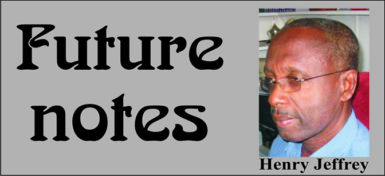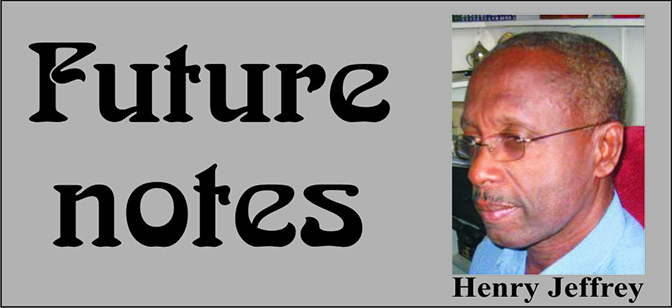
Let me make it quite clear that I am not impressed by Mr. Jagdeo and his party’s political, economic or social skills: how could one be? For example, at the level of political conceptualization, knowing full well that he is an extremely polarizing figure who cannot win much support beyond his traditional constituency, Mr. Jagdeo continues to flirt with an unhelpful notion of a third term, which his party says it does not support and that can only fuel the mobilisation machinery of his opponents! At the level of political activism, by the end of its time in government, the former president of Cheddi Jagan’s PPP was being dragged to court for exacerbating ethnic tensions to win a general election! And at the level of political management, here is a political leadership that having been in control of the state apparatus lost two elections and then tells one that they were rigged from under them by those in opposition. Is it any wonder, then, that many of their own supporters cannot see the PPP/C back in government for decades? So I am not coming to this analysis with rose tinted lenses about former president Jagdeo or the PPP/C, but given their standing we should consider carefully what they have to say.
Mr. Jagdeo claimed that the PPP/C had hoped that the 2001 changes to the constitution that established the various rights and parliamentary sectoral committees would have helped to build the kind of trust that would have allowed his government to ‘contemplate at the executive level more types of sharing.’ He now believes that ‘We have to find a model that involves everyone in the future … governance setting, and that’s why I said our party will work on a pact with civil society before the next elections.’ Clearly with an eye on the behaviour of the present government, he accepts that civil society desires constitutional reform and stated that he will structure his party relationship with its new partners in a manner that will, as best as possible, guarantee that if the PPP wins in 2020, its promises will be fulfilled. Any party that pursues similar dreams that wants to be part of that collective will have a space and ‘A mechanism will be installed to supervise the accountability of state power’. Like political parties everywhere, he also promised that ‘the next PPP government would design policies to empower the poor and there will be inclusive governance that takes in every race and religion.’
Firstly, while I can understand the mental and practical pressures to appear ideologically consistent, it appears to me that if they wish to be taken seriously, the PPP/C needs to give a more honest explanation of, at the very least, its post-Cheddi Jagan history. For example, in 2003, in response to a 2002 PNC paper suggesting the necessity for a shared governance regime, the PPP/C published ‘Towards Greater Inclusive Governance in Guyana: Building Trust To Achieve Genuine Political Co-operation’. This contains many of the arguments to which Mr. Jagdeo was referring when he claimed that he had hoped that the 2001 constitutional changes would have led to the building of trust and the sharing of government at the executive level.
I have argued before that ‘The essential difficulty with this conceptualization is that the maintenance of political dominance is diametrically opposed to the building of trust’ (SN: 27/3/13). The PPP/C’s leadership could not have missed this contradiction and the realization that the need to build trust was obfuscation intended to provide space for it to establish its political dominance. The party cannot persist with these untenable explanations that only make it appear dishonest or naive when little harm would be done were it to admit that it was in a hard political place that the PNC substantially helped to create and took a path that, with hindsight, was not particularly beneficial to itself or Guyana.
Secondly, is the former president now suggesting that he and his party have reviewed their position and is now prepared to ‘contemplate at the executive level more types of sharing’? While often too shrill for my liking, the PPP/C has been largely quite effective in haranguing and making the government more accountable than it would clearly have wanted to be. But this is only one task of an opposition; the other is to present itself as an acceptable alternative government to a wider constituency and if I am correct, Mr. Jagdeo’s formulation above appears the kind of important policy shift upon which it could build a more credible future. He also seems to understand that critical elements in the populace are no longer going to be satisfied with mere promises and that even if it could win, to build a nation out of our contesting tribes a party needs to do more than simply win a majority.
His party should, therefore, immediately provide a precise statement of its proposed new governance structure and relationship with stakeholders. Parliament is the chief mechanism ‘installed to supervise the accountability of state power’ and thus stands available for them to instantly begin the practical task of advocating and attempting to force these changes, many of which the APNU+AFC government promised to the electorate. Of course, other avenues exist through which a robust effort to pursue this reformist agenda can be made so there is absolutely no reason for he and his party to have to wait until after the next elections to initiate the institutional changes he proposes. If I read him correctly, it appears to me that the PPP/C can now develop a solid policy and take a stance that would be a tremendous demonstration of good faith in winning the trust and possible electoral support of a broader public.





